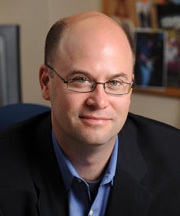
As the U.S. Supreme Court opens its October 2011 term, there is intense focus on several high-profile cases and questions the justices are likely to tackle later, including those involving affirmative action, health-care reform and immigration policy. However, according to Notre Dame Law School Professor Rick Garnett, the court is already set to hear, during this first week of the new term, one of the most important church-state cases in decades (Hosanna-Tabor Evangelical Lutheran Church and School v. EEOC).
“The case involves the ‘ministerial exception’ to employment-discrimination laws,” Garnett says. “This exception prevents courts from second-guessing employment decisions made by religious employers regarding ‘ministerial’ employees. Although the Supreme Court has never squarely addressed this exception, it is a crucial doctrine for protecting religious freedom and the separation of church and state.”
Church-state separation is often misunderstood and misapplied, according to Garnett, who says that some see it as a rule that banishes religious expression and belief to the strictly private sector.
“In fact, church-state separation is not about confining or combatting religion,” he says, “but is instead about limiting the reach of government and protecting the right of religious communities to make their own decisions about religious matters.
“A community that respects the distinction between political and religious authority, and that recognizes the limits of the state’s power over religious matters, is one in which the rights of all – believers and non-believers alike – are more secure,” Garnett continues. “The ministerial exception not only helps to prevent secular decision-makers from getting entangled in essential religious questions, it also protects the fundamental freedom of religious communities to educate and form their members.”
According to Garnett, there is a reasonably solid consensus in the lower courts that the “ministerial exception” is an important dimension of religious freedom. However, he says, “The government appears to be staking out an extreme position, one that would dramatically reduce the freedom of religious communities.”
“Although many cases will present close questions, and call for careful, nuanced consideration,” Garnett observes, “at the end of the day it cannot be the role of civil government to police the decisions of religious communities about who will be their religious leaders, teachers and ministers, any more than to review disputes over the meaning of religious doctrines.”
Garnett is associate dean and professor of law at Notre Dame Law School, where he teaches courses in Constitutional Law, Freedom of Speech, and Freedom of Religion. He also serves as the director of the law school’s Program on Church, State & Society.
Media Advisory: Garnett’s comments may be used in whole or in part. He is available for interviews and can be reached at 574-631-6981 or rgarnett@nd.edu